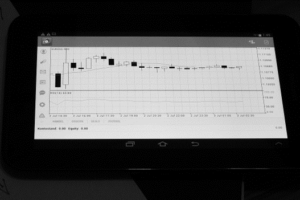
Choosing to sell a business is one of the most important financial decisions business owners have to make. It’s a complex process that can be quite profitable but can also be frustrating and time-consuming. This quick guide to selling a business with a broker is designed to take some of the uncertainty out of the sale so that business owners can learn what to expect and how to proceed.
Start From the Beginning
Before even looking into business brokers, business owners should take the time to sit down and identify the precise reasons they want to sell a business. It’s one of the first questions prospective buyers will ask, and it can help to determine a good strategy for making the sale. Once you’ve done that, you can really start the process to find a business broker.
Common reasons business owners decide to sell include:
- The decision to retire
- Illness or death
- Unresolvable partnership disputes
- Feeling overwhelmed and overworked
- Boredom or wanting to move on to something new
If a business owner’s reason for selling involves a lack of profitability, that can make it very hard to attract buyers. Timing the sale correctly and resolving some of the underlying issues affecting the business can make it more attractive to prospective buyers and increase profits from the sale.
Be Prepared
Experts recommend planning for the sale of a business at least a year in advance of the business owner’s intended closing date. A year or two of advanced preparation can give business owners the time they need to improve the company’s financial records and business structure or focus on building a more robust customer base to increase profits from the sale. Advanced planning also makes it easier to ease the transition and keep the whole operation running smoothly once the sale goes through.
Buyers have certain expectations when it comes to documentation, as well. A business broker can help clients get together all the required documents, but business owners can also get a head start during the planning phase by gathering together:
- Accurate, up-to-date financial records
- Annual business plans, budgets, and forecasts
- Cash flow forecasts
- Industry-specific metrics
- Industry benchmarks and analyses
The documentation of a business’s day-to-day operations constitutes a valuable asset for any buyer. While the timing of disclosures varies, most buyers will want to review these documents prior to signing on the dotted line:
- Procedure’s manuals
- Organization charts
- Supplier and customer contracts
- Employment agreements
- Documentation of automated processes
Buyers are generally more motivated if they have a clear picture of the business’s current operations, and everything seems to be in order. Business owners who want to push through fast sales can save a ton of time hunting for buyers by getting everything in order in advance.
Choosing a Business Broker
If it seems like there’s a lot involved in selling a business, that’s because reaping maximum profits from a business sale does, in fact, take a lot of work. Hiring a business broker is the best way to reduce that workload and ensure that all the ducks are in a row. Consider these factors before deciding who to work with:
- Personal Expectations
It’s important for business owners to discuss their expectations before choosing who to trust with facilitating the sale. Direct and open communication is the key, so make expectations clear and find out whether a particular broker will be able to meet them.
- Industry Connections and Marketing Budgets
It costs an average of $400 to $1,500 to market a business sale that reaches qualified buyers. Every broker has a different set of tools available to facilitate marketing and networking. Ask about industry connections and what type of advertising campaigns the broker will use to draw in qualified buyers.
- Business Valuation
There are multiple methods for business valuation. Ask the broker to determine the valuation based on whatever metrics he or she thinks are most appropriate before signing a listing agreement. It’s also important to ask about cash prices and sale terms because there are many ways to structure a deal. Looking for valuation services that provides expert business valuations for a range of clients for all business types, then this Adelaide Business Valuations here is all you need!
- Confidentiality Issues
Planning a confidential business sale can be extremely tricky. The broker should use a professionally crafted, legally binding Confidentiality Agreement and always keep it on file. Ask how he or she will market the sale without breaching confidentiality.
- Relevant Experience
It’s best to work with a broker who is comfortable with selling businesses of similar types and sizes in similar markets. Small business owners should look for brokers with experience marketing small businesses. Those working in niche industries should find a broker who has taken on similar clients in the past.
- Good Communication
Timing is everything when it comes to pushing through the sale of a business. Make sure the broker will be responsive and attentive to both details and timeframes. If all parties don’t move forward on the deal consistently, there’s less of a chance that it will go through.
- A Legally Binding Contract
All listing agreements should be formatted as legally binding contracts. They should include all information relevant to the sale of the business, including:
- How long the broker will represent the client
- How the business sale will be marketed
- How and how often the broker will stay in touch with the client about potential buyers and deal updates
- What happens when the current listing agreement expires?
- The broker’s commission when the agreement expires
- Whether the broker will work with other agents on the listing
Review the contract carefully. If it seems like there’s any key information missing, clarify it before moving forward or look into other brokers.
Let’s Make a Deal
Already know why it’s time to sell and ready to get started finding qualified buyers as fast as possible? Even if a business owner is willing to take a hit to his or her profits in order to push through a quick sale, it’s still worth taking the time to get the company’s finances, operations, and documents in order before reaching out to a broker. From there, the business broker can take care of all the heavy lifting while clients receive constant updates about marketing, prospective buyers, and any issues that come up along the way.






